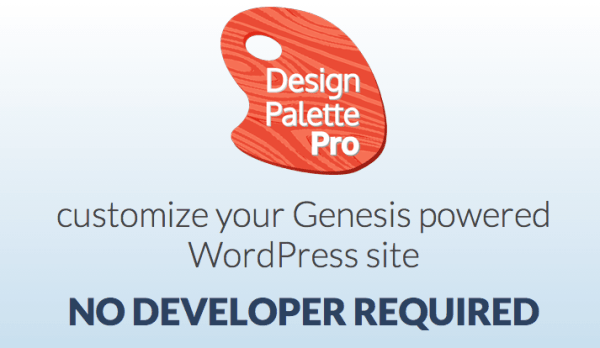When you talk to people about WordPress themes, you’ll hear a lot of different opinions about a lot of different vendors & frameworks – premium and free alike.
One of the ones you hear a lot about, especially from developers, is the Genesis framework by StudioPress. I think there are at least three great reasons why you hear developers talk about it so much:
Reasons developers love Genesis
The code doesn’t try to do more than what should be done (no social media features, no testimonials, no email signups, etc). That is what we call “clean” code. It’s specific and focused on a high performance, well-coded site.
The code (the framework) gives trained developers an easy way to manipulate things via code. Developers don’t want to set up a site by going in and clicking on a lot of check boxes and panels. They want to drop in some snippets and be on their way.
There’s a huge community of developers that have solved all sorts of puzzles to create any looking child theme that you like. Even if you don’t dig the look of the child themes on StudioPress’ site, that doesn’t stop you from creating your own look.
Creating your look has been tough
Of course, creating your own look, especially if you’re not a developer, has been rough sometimes. There are a ton of great tutorials out there, like those written by Bill Erickson or Carrie Dils, but they often start and end with lines of code that you need to add to your site.
That leaves most non-developers with a bit of stress – even if all they wanted to do was change their background color, header color, content background, font color and footer.
“That’s not so much to ask” has been the refrain often heard after a site owner gets delivered their new site and they later decide they want to make some of those changes. Because they’re suddenly reading tutorial posts that present tiny snippets of code.
Don’t tell me CSS isn’t code!
 The common response I hear from developers is that CSS isn’t code. But here’s a new guiding pricinple for developers to help them think about what is and isn’t code for non-developers.
The common response I hear from developers is that CSS isn’t code. But here’s a new guiding pricinple for developers to help them think about what is and isn’t code for non-developers.
If the placement of a semi-colon or comma is important, it’s code.
See, other than in the case of having your grandma over for dinner, punctuation in writing won’t break your blog or book. But even in CSS, poorly placed punctuation can get you a white screen of “oh my gawd, what just happened?”
And the “CSS isn’t code” doesn’t help anyone.
But there’s good news for Genesis website owners!
My friend Andrew Norcross and the team over at Reaktiv Studios has been building a plugin that will give you complete creative control over your Genesis site.
Design Palette Pro is the answer you’ve been waiting for.
I know what you’re thinking – even as you think it. But wait, you’re wondering, what if I’m using one of StudioPress’ child themes on top of Genesis? Will it work then?
If you’re using one of the most common child themes they’ve ever sold – like Metro Pro or Minimum Pro – you’re in luck because they’ve made it to work with those as well (via add-ons). More will be coming.
And here’s even more good news for developers…
I’ve looked over the code for Design Palette Pro and I can tell you that it’s written in a way that your own developers can use when they’re creating a custom design or child theme for you.
What that means is that even with your custom look, they can use the hooks (actions and filters) to connect the design to Design Palette Pro so that you can later change colors, fonts, and more.
So when can I get it?
I know you’re wondering about it’s availability. Well here’s the good news. If things work out just right, it will be launching (going live) today. I can’t tell you exactly when, but if you head over there now, you can sign up to be notified.
All I know is that you’re not going to want to miss out on this. I’m working on a redesign of my own site, with a new Genesis child theme, and I’m looking forward to integrating it with Design Palette Pro.
So head over today and check it out!

